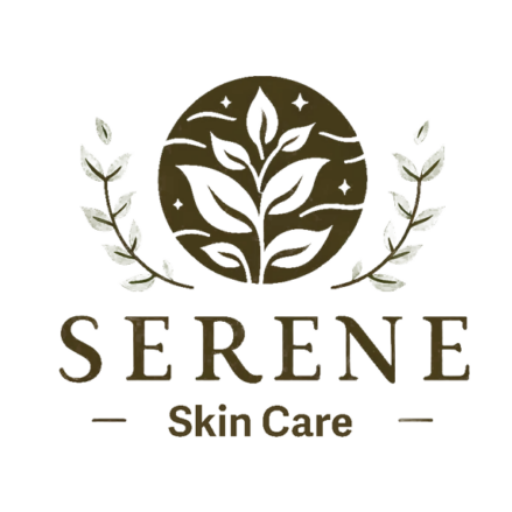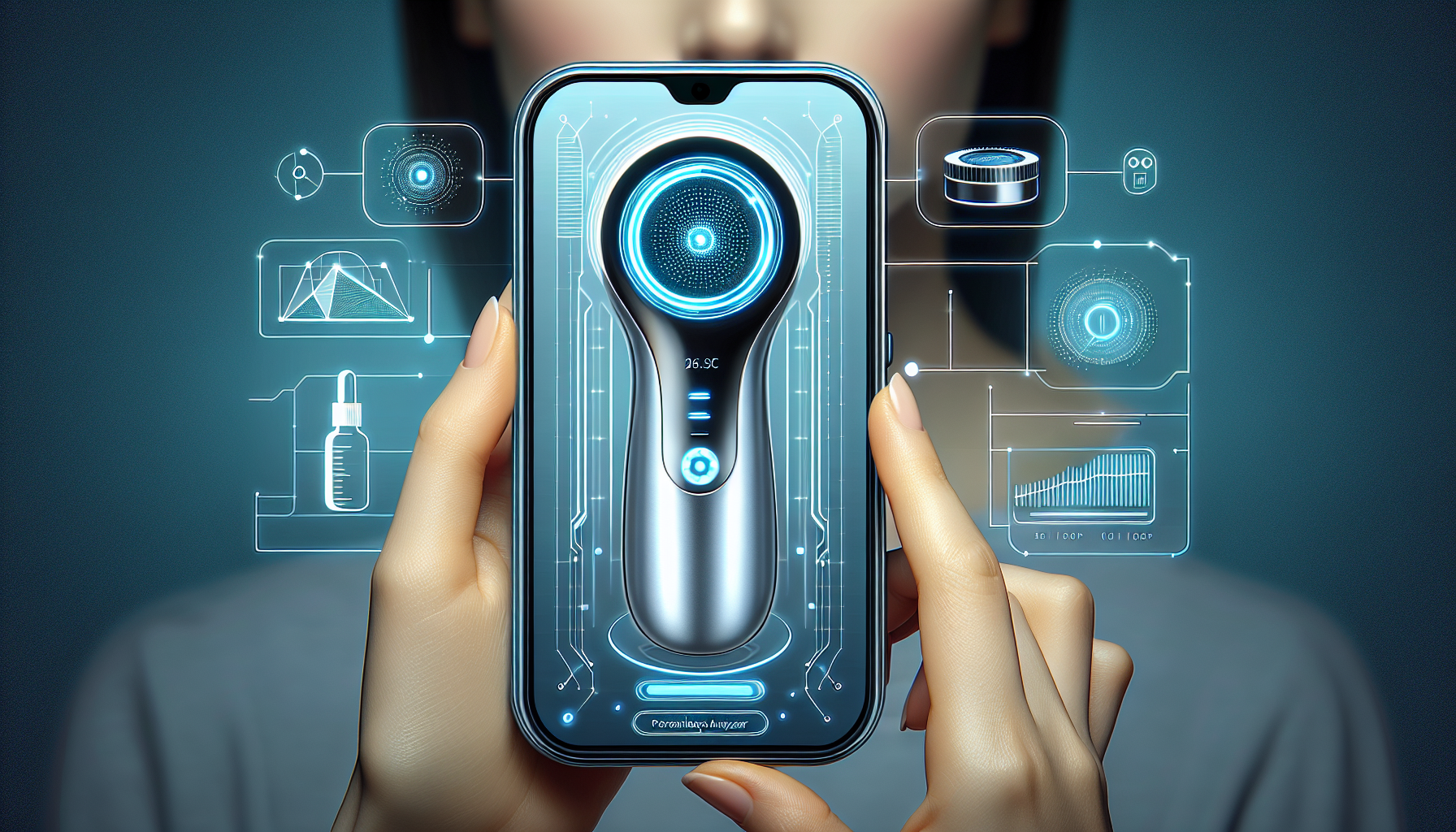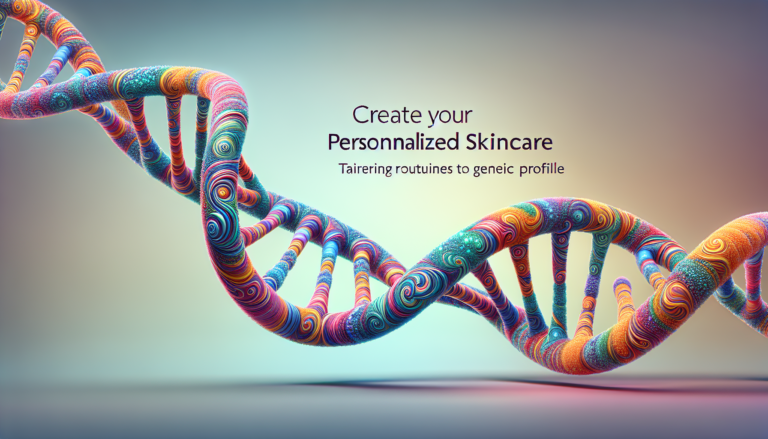With advancements in technology, the future of personalized skincare apps and tools is paving the way for a new level of self-care. These innovative applications and devices offer tailored solutions for individuals’ unique skincare needs, allowing them to easily track and manage their routines. From virtual consultations with skincare experts to personalized product recommendations based on individual skin concerns, these apps and tools promise a more personalized and efficient approach to achieving healthy and radiant skin. Get ready to embark on a journey towards a more customized skincare experience.
The Rise of Personalized Skincare Apps
In recent years, there has been a significant rise in the popularity of personalized skincare apps. These apps have revolutionized the way people take care of their skin by leveraging advancements in technology, integration of artificial intelligence, and customized skincare recommendations. With the help of these innovative tools, individuals can now have a tailored skincare routine that caters to their specific needs and concerns, leading to healthier and more radiant skin.
Advancements in Technology
Advancements in technology have played a crucial role in the rise of personalized skincare apps. With the increased processing power of smartphones and the availability of high-quality cameras, these apps can now analyze the condition of the skin with accuracy and precision. Additionally, the development of smart devices specifically designed for skincare analysis has further enhanced the capabilities of these apps, providing users with comprehensive and detailed information about their skin.
Integration of Artificial Intelligence
One of the key components of personalized skincare apps is the integration of artificial intelligence (AI). Through the use of AI algorithms, these apps can process vast amounts of data and provide personalized recommendations based on individual skin types, concerns, and goals. AI enables the apps to learn and adapt over time, continuously improving the accuracy of their recommendations and ensuring that users receive the most effective skincare advice.
Customized Skincare Recommendations
Gone are the days of generic skincare advice that may not address the specific needs of individuals. Personalized skincare apps now offer customized recommendations based on individual skin profiles. By collecting data on factors such as skin type, age, concerns, and environmental conditions, these apps can generate personalized skincare routines that target specific issues and help users achieve their desired results. Whether it’s acne, dryness, or signs of aging, these apps can recommend the right products and treatments to address each user’s unique needs.
Revolutionizing Skincare Routine
Personalized skincare apps have revolutionized the way people approach their skincare routine. With the integration of smart devices for skincare analysis, real-time skin monitoring, and virtual skincare consultations, individuals now have access to a plethora of tools and resources to enhance their skincare experience.
Smart Devices for Skincare Analysis
Smart devices, such as handheld skin analyzers and home-based skin scanners, have become popular companions for personalized skincare apps. These devices provide users with in-depth insights into their skin condition, including measurements of hydration levels, sebum production, elasticity, and even the presence of UV damage. By connecting these devices to the app, users can easily track their skin’s progress over time and make more informed decisions about their skincare products and routines.
Real-Time Skin Monitoring
Another key feature offered by personalized skincare apps is real-time skin monitoring. By using the camera on their smartphones, users can take close-up photos of their skin and upload them to the app for analysis. The app then examines the photos, identifying any visible concerns or changes in the skin’s condition. This real-time monitoring allows users to stay updated on their skin’s health and make adjustments to their skincare routine as needed.
Virtual Skincare Consultations
In addition to providing analysis and monitoring, personalized skincare apps also offer virtual skincare consultations with skincare professionals. Users can schedule video calls or chat sessions with dermatologists or estheticians, who can assess their skin condition, provide personalized advice, and recommend effective products or treatments. This virtual consultation feature is particularly valuable for those who may not have easy access to skincare specialists or prefer the convenience of receiving professional guidance from the comfort of their own homes.
Enhancing User Experience
Personalized skincare apps are not only focused on providing accurate skincare recommendations but also enhancing the user experience. With the integration of augmented reality (AR) in skincare, virtual try-ons for skincare products, and gamification of skincare, these apps make the skincare journey more interactive and engaging.
Augmented Reality in Skincare
Augmented reality has found its way into the realm of skincare apps, allowing users to visualize the potential effects of different skincare products on their faces. Through the use of AR filters, users can virtually try out various products, such as moisturizers, serums, and even makeup, to see how they would look and feel on their skin before making a purchase. This interactive experience helps users make more informed decisions and find products that match their preferences and skin goals.
Virtual Try-Ons for Skincare Products
Gone are the days of relying solely on samples and testers to try out skincare products. Personalized skincare apps now offer virtual try-ons, where users can upload a photo of their face and virtually apply different skincare products to see how they would look and feel. This feature not only eliminates the need for physical samples but also allows users to experiment with a wide range of products from various brands, making the shopping experience more convenient and enjoyable.
Gamification of Skincare
To make the skincare routine more fun and engaging, personalized skincare apps have incorporated gamification elements. Users can earn points, badges, or rewards for completing certain skincare tasks, such as applying sunscreen daily or completing a specific skincare regimen. Gamification helps users stay motivated and consistent with their skincare routines while turning the process into a playful and interactive experience.
Data Privacy and Security
As personalized skincare apps collect and analyze vast amounts of user data, concerns about data privacy and security have come to the forefront. It is essential for these apps to prioritize the safe storage of personal information, ensure ethical use of user data, and comply with regulations such as the General Data Protection Regulation (GDPR) and the California Consumer Privacy Act (CCPA).
Storing Personal Information Safely
Personalized skincare apps must prioritize the safe storage of user information by implementing robust security measures. This includes using encryption to protect data both during transmission and when at rest, implementing multi-factor authentication for user accounts, and regularly conducting security audits to identify and address any vulnerabilities. By taking these measures, apps can instill trust in their users and reassure them that their personal information is being handled securely.
Ethical Use of User Data
Transparency and ethics play a crucial role in the success of personalized skincare apps. Users must be informed about what data is being collected, how it will be used, and if it will be shared with third parties. Apps should obtain explicit consent from users before collecting any personal information and provide clear options for users to control their data, including the ability to opt-out or delete their information if desired. By prioritizing the ethical use of user data, apps can build a strong relationship with their users based on trust and respect.
Compliance with GDPR and CCPA
Personalized skincare apps that operate globally must comply with data protection regulations such as the GDPR and CCPA. These regulations outline the rights and responsibilities of both app developers and users when it comes to the handling of personal data. Compliance with these regulations ensures that users have control over their data, including the right to access, rectify, and delete their information. By adhering to these standards, personalized skincare apps can demonstrate their commitment to data privacy and security.
The Role of Social Media and Influencers
Social media and influencers have undeniably played a significant role in shaping trends and influencing consumer behavior, including in the skincare industry. Personalized skincare apps have capitalized on this influence by integrating social media features, leveraging influencers as skincare advisors, and encouraging user reviews and ratings.
Social Media Integration in Skincare Apps
To cater to the digitally connected generation, personalized skincare apps have integrated social media features. Users can share their skincare routines, progress, and results directly from the app to their social media accounts, allowing them to engage with others and create a sense of community around skincare. This integration not only promotes the app but also encourages users to take pride in their skincare journey and share their experiences with others.
Influencers as Skincare Advisors
Influencers have become trusted sources of skincare advice and product recommendations. Personalized skincare apps have recognized this and partnered with influencers to provide expert insights and recommendations to users. Influencers can collaborate with the app developers, creating content tailored to the app’s audience, delivering skincare tips, and endorsing specific products or treatments. By leveraging the expertise and credibility of influencers, personalized skincare apps can connect users with trusted advisors who can guide them on their skincare journey.
User Reviews and Ratings
User-generated content, such as reviews and ratings, has become a significant influencing factor in purchase decisions. Personalized skincare apps often encourage users to leave reviews and ratings for the products they have tried within the app. These reviews help other users make informed choices and provide valuable feedback to app developers and skincare brands. By incorporating user reviews and ratings into the app, users can benefit from the experiences and opinions of their peers, resulting in a more comprehensive and reliable skincare resource.
Personalized Skincare Products
Personalized skincare apps not only offer recommendations for existing skincare products but also explore the concept of formulating customized products, printing skincare products at home, and even DIY beauty recipes. These advancements allow individuals to take their skincare routine to a whole new level of personalization.
Formulating Customized Products
Personalized skincare apps have paved the way for the formulation of customized skincare products. By analyzing the user’s skin type, concerns, and goals, these apps can recommend specific ingredients and formulations that target individual needs. Some apps even offer the option to create personalized skincare products, allowing users to choose their preferred ingredients, fragrances, and textures. This level of customization ensures that individuals are using products tailored to their skin’s unique requirements, leading to more effective results.
Printing Skincare Products at Home
Advancements in 3D printing technology have opened up new possibilities in the skincare industry. Personalized skincare apps can now enable users to print their skincare products at home using 3D printers. These printers can produce customized skincare formulations based on the user’s specific needs and preferences. By allowing users to create their own skincare products, personalized skincare apps empower individuals to take control of their skincare routine and experiment with formulations that work best for them.
DIY Beauty Recipes
For those who prefer a more hands-on approach to skincare, personalized skincare apps offer access to a wealth of DIY beauty recipes. These recipes provide step-by-step instructions on how to create natural and effective skincare products using readily available ingredients. From homemade face masks to DIY serums, users can explore and create their own personalized skincare concoctions, tailoring them to their skin’s specific needs and preferences. These DIY beauty recipes not only promote creativity and self-expression but also offer a more sustainable and cost-effective alternative to commercial skincare products.
The Importance of Sustainability
In recent years, the skincare industry has faced increasing scrutiny regarding its impact on the environment. Personalized skincare apps have recognized the importance of sustainability and have taken steps to promote eco-friendly practices, reduce packaging waste, and source sustainable ingredients.
Eco-friendly Skincare Apps and Tools
To minimize their environmental footprint, personalized skincare apps have adopted eco-friendly practices. This includes developing apps that consume minimal energy and operate efficiently, using server resources responsibly to reduce carbon emissions. Additionally, some apps have integrated features that promote sustainability, such as reminders for using eco-friendly packaging, opting for sustainable brands, or supporting recycling initiatives. By incorporating these eco-friendly elements, these apps contribute to a greener future while enhancing the overall skincare experience.
Reducing Packaging Waste
The beauty industry is known for its excessive packaging, which contributes to waste and environmental pollution. Personalized skincare apps are addressing this issue by recommending brands that prioritize sustainable packaging solutions. By encouraging users to opt for products with minimal packaging, recyclable materials, or refillable options, these apps play a crucial role in reducing packaging waste. Moreover, some apps even provide users with information on local recycling programs and facilities, making it easier for individuals to dispose of their skincare packaging responsibly.
Sustainable Ingredient Sourcing
Personalized skincare apps have also placed an emphasis on the sourcing of sustainable ingredients. They recommend brands that prioritize ethical sourcing practices, such as fair trade and organic certification. These apps aim to support brands that are committed to reducing deforestation, preserving biodiversity, and supporting local communities. By promoting sustainable ingredient sourcing, personalized skincare apps contribute to a more ethical and environmentally conscious skincare industry.
Challenges and Concerns
While personalized skincare apps have undoubtedly brought numerous benefits to users, there are also challenges and concerns that need to be addressed for their continued success and widespread adoption.
Reliability of AI Algorithms
The effectiveness of personalized skincare apps heavily relies on the reliability of their AI algorithms. As these algorithms learn and adapt over time, they must ensure accurate and personalized recommendations. However, there is always a risk of false or biased recommendations, which can impact users’ skincare outcomes. App developers must continually refine their algorithms and validate their recommendations against expert advice to ensure reliability and build trust with their users.
Accessibility and Affordability
While personalized skincare apps have made skincare more accessible to many individuals, there are still barriers that need to be addressed. Some users may not have access to smartphones or smart devices necessary to fully utilize these apps. Moreover, the cost of skincare products and services recommended by the apps may be a limiting factor for some users. To enhance accessibility and affordability, developers should consider offering more affordable options and explore partnerships or subsidies to make personalized skincare more accessible to a wider audience.
Standardizing Skincare Recommendations
With numerous personalized skincare apps available in the market, there is a need for standardization in skincare recommendations to avoid confusion and conflicting advice. Skincare apps should collaborate with dermatologists and skincare professionals to develop standardized guidelines and best practices that can serve as a reliable foundation for personalized recommendations. By working together, app developers and skincare experts can ensure consistency and improve the overall quality of skincare advice provided by these apps.
Collaboration with Dermatologists
Personalized skincare apps can further enhance their effectiveness by fostering collaboration with dermatologists and skincare professionals. By integrating professional guidance, leveraging telemedicine, and assisting in creating well-rounded skincare regimens, these apps can ensure that users receive comprehensive and informed skincare recommendations.
Integration of Professional Guidance
Personalized skincare apps can collaborate with dermatologists and estheticians to further enhance their offerings. By providing in-app access to skincare professionals, users can benefit from expert advice, receive personalized recommendations, and address specific skin concerns. This integration of professional guidance ensures that users have access to the highest level of expertise and can make informed decisions about their skincare.
Telemedicine and Skincare Apps
Telemedicine has transformed the healthcare industry, offering remote access to medical professionals, and personalized skincare apps can leverage this technology to facilitate virtual dermatology consultations. By enabling users to connect with dermatologists via video calls or online chats, skincare apps bridge the gap between skincare professionals and users, ensuring access to expert advice without the need for in-person appointments. This integration of telemedicine in skincare apps brings convenience, accessibility, and efficiency to the skincare consultation process.
Creating Well-rounded Skincare Regimens
Effective skincare goes beyond individual products or treatments; it is about creating a well-rounded regimen that addresses different aspects of skincare. Personalized skincare apps can assist users in curating comprehensive skincare routines, considering factors such as cleansing, exfoliating, moisturizing, and sun protection. By providing guidance on the order of product application, frequency of use, and specific recommendations for different skin concerns, these apps empower users to create personalized regimens that optimize their skincare outcomes.
Conclusion
The rise of personalized skincare apps and tools has brought about a revolution in the skincare industry. With advancements in technology, integration of artificial intelligence, and customized skincare recommendations, these apps have empowered users to take control of their skincare routine and achieve healthier, more radiant skin. By enhancing user experience through augmented reality, virtual try-ons, and gamification, these apps have made skincare interactive and engaging. However, challenges such as data privacy, reliability of AI algorithms, and accessibility need to be addressed for the continued success of personalized skincare apps. By collaborating with dermatologists, integrating professional guidance, and promoting sustainability, these apps can shape the future of skincare, ensuring that users receive personalized and informed recommendations. With the continuous evolution of personalized skincare, the future looks bright for the skincare apps and tools that empower individuals through technology.


